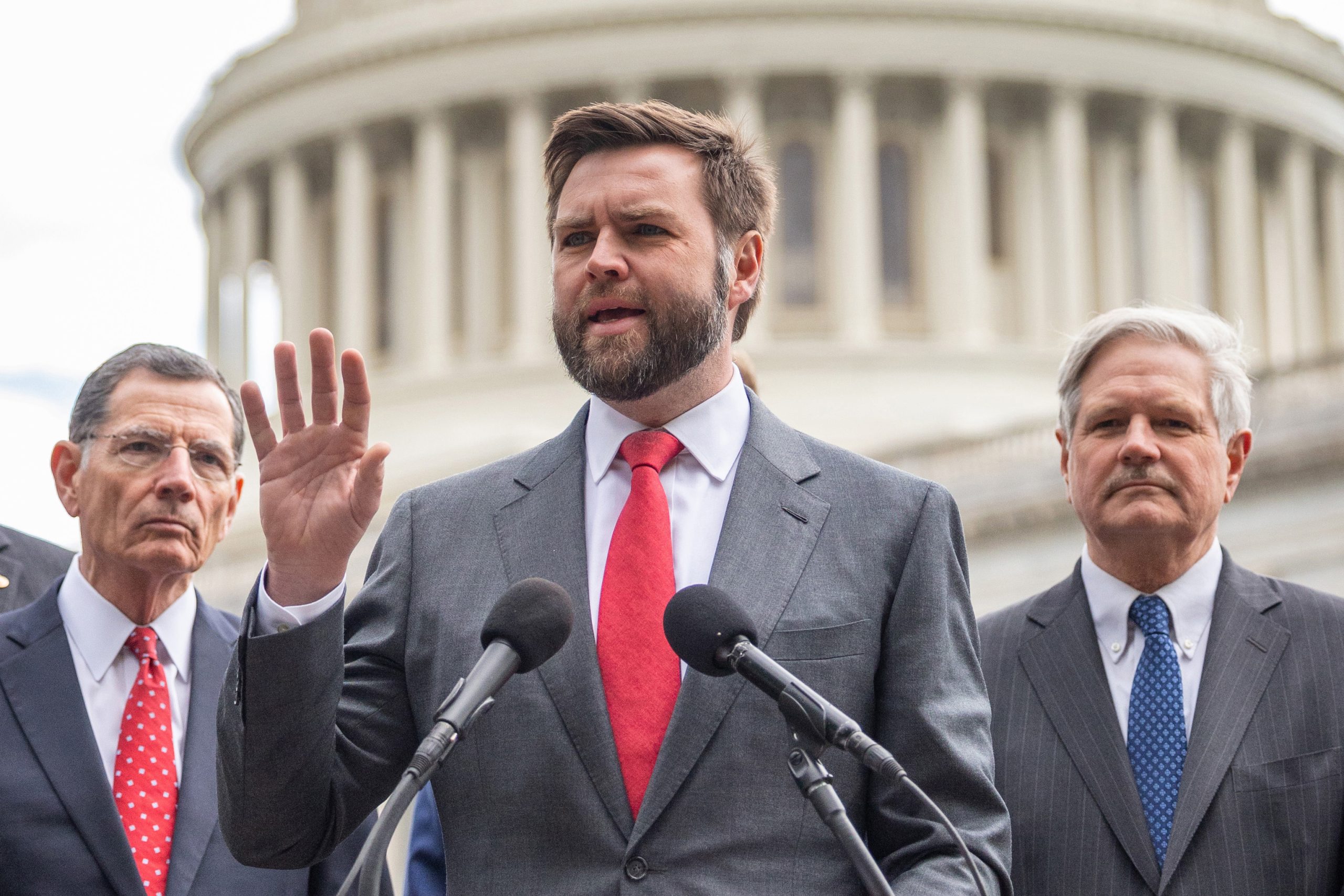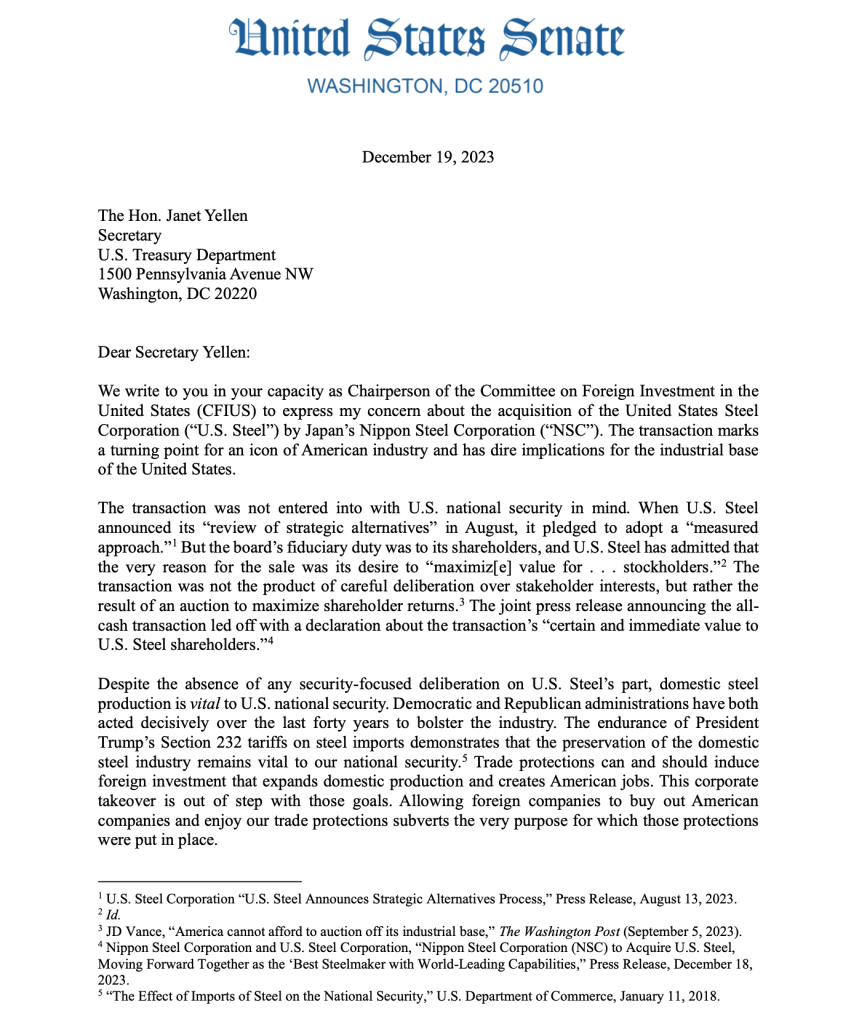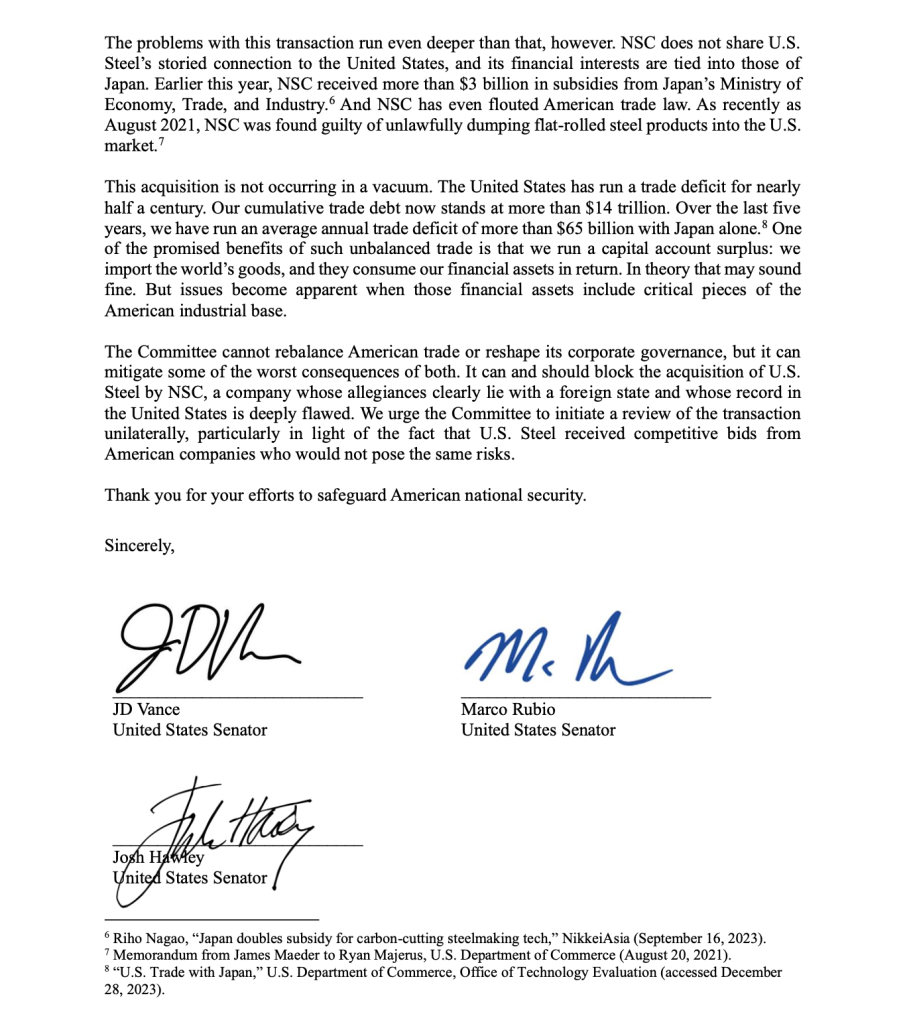WASHINGTON, D.C. – Senators JD Vance (R-OH), Josh Hawley (R-MO) and Marco Rubio (R-FL) sent a letter to Janet Yellen, Secretary of the Treasury and Chair of the Committee on Foreign Investment in the United States (CFIUS), to urge CFIUS to block the sale of U.S. Steel Corporation to Japan-based Nippon Steel Corporation (NSC).
The sale of U.S. Steel to NSC, wrote the Senators, “has dire implications for the industrial base of the United States,” and “was not entered into with U.S. national security in mind.”
The Senators’ letter reads, in part:
“Despite the absence of any security-focused deliberation on U.S. Steel’s part, domestic steel production is vital to U.S. national security. Democratic and Republican administrations have both acted decisively over the last forty years to bolster the industry. The endurance of President Trump’s Section 232 tariffs on steel imports demonstrates that the preservation of the domestic steel industry remains vital to our national security. Trade protections can and should induce foreign investment that expands domestic production and creates American jobs. This corporate takeover is out of step with those goals. Allowing foreign companies to buy out American companies and enjoy our trade protections subverts the very purpose for which those protections were put in place.
“The problems with this transaction run even deeper than that, however. NSC does not share U.S. Steel’s storied connection to the United States, and its financial interests are tied into those of Japan. Earlier this year, NSC received more than $3 billion in subsidies from Japan’s Ministry of Economy, Trade, and Industry. And NSC has even flouted American trade law. As recently as August 2021, NSC was found guilty of unlawfully dumping flat-rolled steel products into the U.S. market.
“This acquisition is not occurring in a vacuum. The United States has run a trade deficit for nearly half a century. Our cumulative trade debt now stands at more than $14 trillion. Over the last five years, we have run an average annual trade deficit of more than $65 billion with Japan alone. One of the promised benefits of such unbalanced trade is that we run a capital account surplus: we import the world’s goods, and they consume our financial assets in return. In theory that may sound fine. But issues become apparent when those financial assets include critical pieces of the American industrial base.
“The Committee cannot rebalance American trade or reshape its corporate governance, but it can mitigate some of the worst consequences of both. It can and should block the acquisition of U.S. Steel by NSC, a company whose allegiances clearly lie with a foreign state and whose record in the United States is deeply flawed. I urge the Committee to initiate a review of the transaction unilaterally, particularly in light of the fact that U.S. Steel received competitive bids from American companies who would not pose the same risks.”
Read the full letter here and below:
For Background:
- On Monday, following the announcement of U.S. Steel’s sale to NSC, Senator Vance issued a statement which read, in part: “I will interrogate the long-term implications for the American people, and I will do everything in my power to protect the future of our nation’s security, industry, and workers.”
- In an August letter to the CEO and Chairman of U.S. Steel, Senator Vance urged the company to reject any acquisition bid from a foreign entity, citing the vital role the domestic steel industry serves in defending the “security and prosperity” of the United States.
- In a September op-ed published in The Washington Post, Senator Vance raised concerns over the consequences a potential sale of U.S. Steel would create for the U.S. industrial base, and commented on the effect the Revlon doctrine has on corporations facing purchase offers.
###



